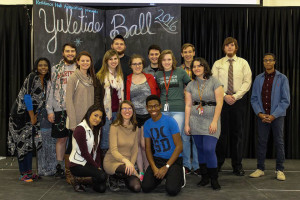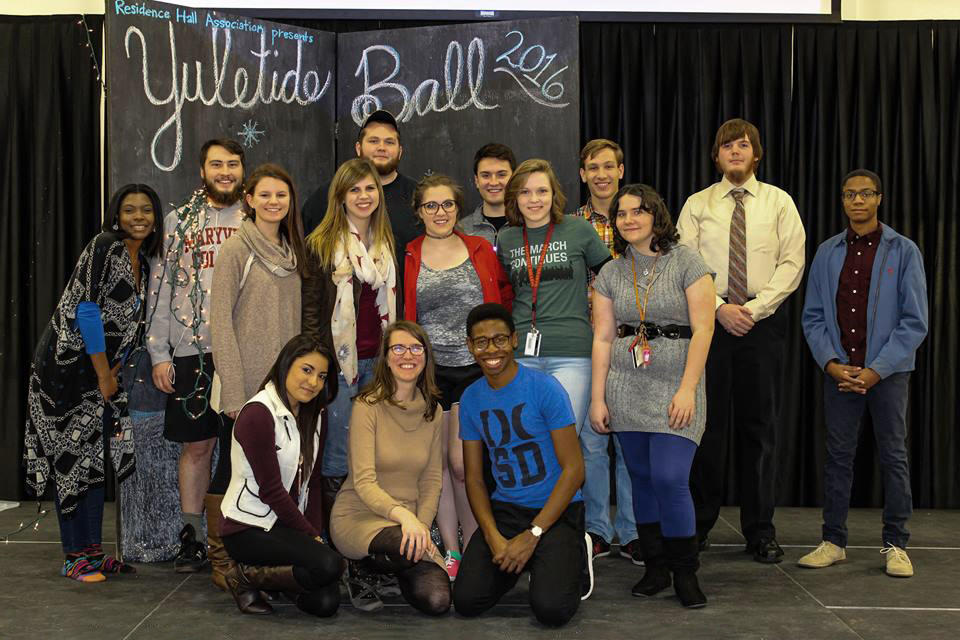Meet the Residence Hall Association

Before the Yuletide Ball on Jan. 29, flyers were posted in every residence hall and high-traffic area across campus. Students noticed details such as the dress code and free food. They discussed possible outfit choices and contributed to the open playlist for the event. However, few took note of the organization hosting the ball.
Members of the Residence Hall Association (RHA) are aware that there is little glory in the work they do. Unlike larger clubs such as the Student Programming Board, RHA is not well-known or highly appreciated. But they don’t do it for the recognition.
The RHA motto is “We do it in the halls.” Aside from the humor involved, this motto reflects the attitude of involvement and interaction that the executive committee has worked hard to foster. It also demonstrates the community aspect of the residence halls.
Their mission statement is as follows: “RHA works together with all the residence halls on the Maryville College campus to ensure the interest of all residents by offering fellowship through educational and social programming, monitoring residential life policies, and leadership development through training.”
RHA Vice President Aley Goodlett says the purpose of the organization is essentially “to give students a reason to stay on campus.” RHA seeks to get students involved and active in their residential community.
So far this year, RHA has hosted events such as the Welcome Event for freshmen, Pumpkin Palooza, the Scream, the Chalk Zone and the Yuletide Ball. Upperclassmen will remember events from years past including Copeland de Mayo and the Ramen Cook-off. Each of these events has been geared toward student interaction.
Many also focus on creativity. At Pumpkin Palooza, students were encouraged to paint masterpieces on pumpkins. The Chalk Zone allowed students to destress during finals week while also using their imaginations. Although the Scream focused less on creating physical art, it allowed students a break from finals week to shout as loudly as they could in the gymnasium. These events are designed to achieve a higher rate of student participation.
“RHA is personal,” said Goodlett. “SPB is your friend down the street with the PlayStation, but then you go home and play board games with your family.”
She believes that both student organizations have unique qualities to offer, but RHA focuses more on bringing people together. Instead of students making up the audience, they take an active role in each event.
RHA also differs from other student organizations because it doesn’t spend a lot of money on attractions or prizes. Rather than hiring professional performers, RHA events highlight student talent. Decorations are frequently reused, and a significant portion of the RHA budget is used to aid in individual residence hall programming.
The most important message Goodlett wants to communicate to the student body is that RHA is not exclusive. This organization is always looking for participation and any student can join at any time. If students want to make a difference without becoming members of RHA, they can always offer suggestions.
“We want to know what you want for your campus, because it’s your campus,” said Goodlett.

